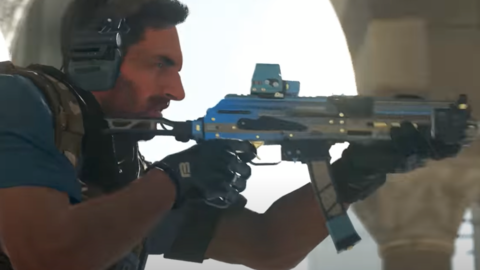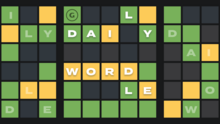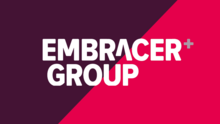How Much Did Halo Infinite Cost To Produce? This Document Has The Answer, But You Can't See It
We got frustratingly close to finding out.
As part of the FTC's anti-trust lawsuit against Microsoft over the Activision Blizzard deal, the government group published its full complaint, and it contains some juicy information, or it almost does. In a section pertaining to AAA games, the production budgets for Halo Infinite and another upcoming game were divulged, but unfortunately for all of us, the information was redacted.
The document states that Halo Infinite "was in production for [REDACTED] years, and cost almost [REDACTED] millions."
Prior to launch, it was reported that Microsoft spend "hundreds of millions" to develop Halo Infinite and its Slipspace engine over the course of many years. Microsoft never confirmed this, however.
The FTC document goes on to say that "Other AAA games may take even longer to develop." The document cites an unspecified Microsoft executive who said that a game from a mystery established franchise could have a bigger budget and a lengthier production schedule than Halo Infinite.
The text reads, "For instance, according to one Microsoft executive, [REDACTED], a forthcoming title from the [REDACTED] franchise, may take a [REDACTED] to develop." Whether or not this Microsoft executive was speaking about a first-party title or a game from another company is unknown. Microsoft would presumably be able to speak more definitively about its own franchises, but it's likely that a higher-up would have some inkling of understanding about a rival game's budget, too.
The FTC redacted all of this key information to help Microsoft preserve its own trade secrets. While some game developers openly discuss budgets, companies like Microsoft, Sony, and Nintendo rarely do for competitive reasons. The release date of the PlayStation 6 was also recently revealed in a document, though it, too, was redacted.
While all of this information was redacted, it's still possible that some of the information could come out eventually, similar to what happened with redacted material in the Apple/Epic lawsuit.

As expected, the FTC launched an antitrust lawsuit against Microsoft to try to block the Xbox company's proposed deal to buy Activision Blizzard. Microsoft president Brad Smith reacted to the news of the lawsuit this week, saying, "While we believe in giving peace a chance, we have complete confidence in our case and welcome the opportunity to present it in court."
We have been committed since Day One to addressing competition concerns, including by offering earlier this week proposed concessions to the FTC. While we believe in giving peace a chance, we have complete confidence in our case and welcome the opportunity to present it in court.
— Brad Smith (@BradSmi) December 8, 2022
Microsoft maintains that its deal will "expand competition" and not limit it, but the FTC doesn't exactly see it this way. The group said in its complaint that, should the deal be allowed to go through, Microsoft would "have the power to decide if, when, and to what extent Activision content will be available on competing products." It added: "The proposed acquisition is likely to increase entry barriers, thereby dampening beneficial rivalry and innovation."
For its part, Microsoft has said it would be a major financial mistake to remove Call of Duty from PlayStation because the franchise makes so much money on Sony's platform. Microsoft has said it will bring every new Call of Duty game to PlayStation the same day, and with the same features, as it launches on other platforms, should the deal go through.
In related news, Microsoft recently reached a 10-year deal with Nintendo for Call of Duty, while the series will continue to release on Steam as well. The 10-year deal has been offered to Sony as well, but the company has yet to accept.
Microsoft Gaming CEO Phil Spencer recently criticized Sony for objecting to the deal and Call of Duty specifically, saying, "There has really only been one major opposer to the deal, and it's Sony."
"The largest console maker in the world is raising an objection about one franchise that we've said will continue to ship on the platform. It's a deal that benefits customers through choice and access," Spencer said.
The products discussed here were independently chosen by our editors. GameSpot may get a share of the revenue if you buy anything featured on our site.
Got a news tip or want to contact us directly? Email news@gamespot.com
.jpg)






Join the conversation